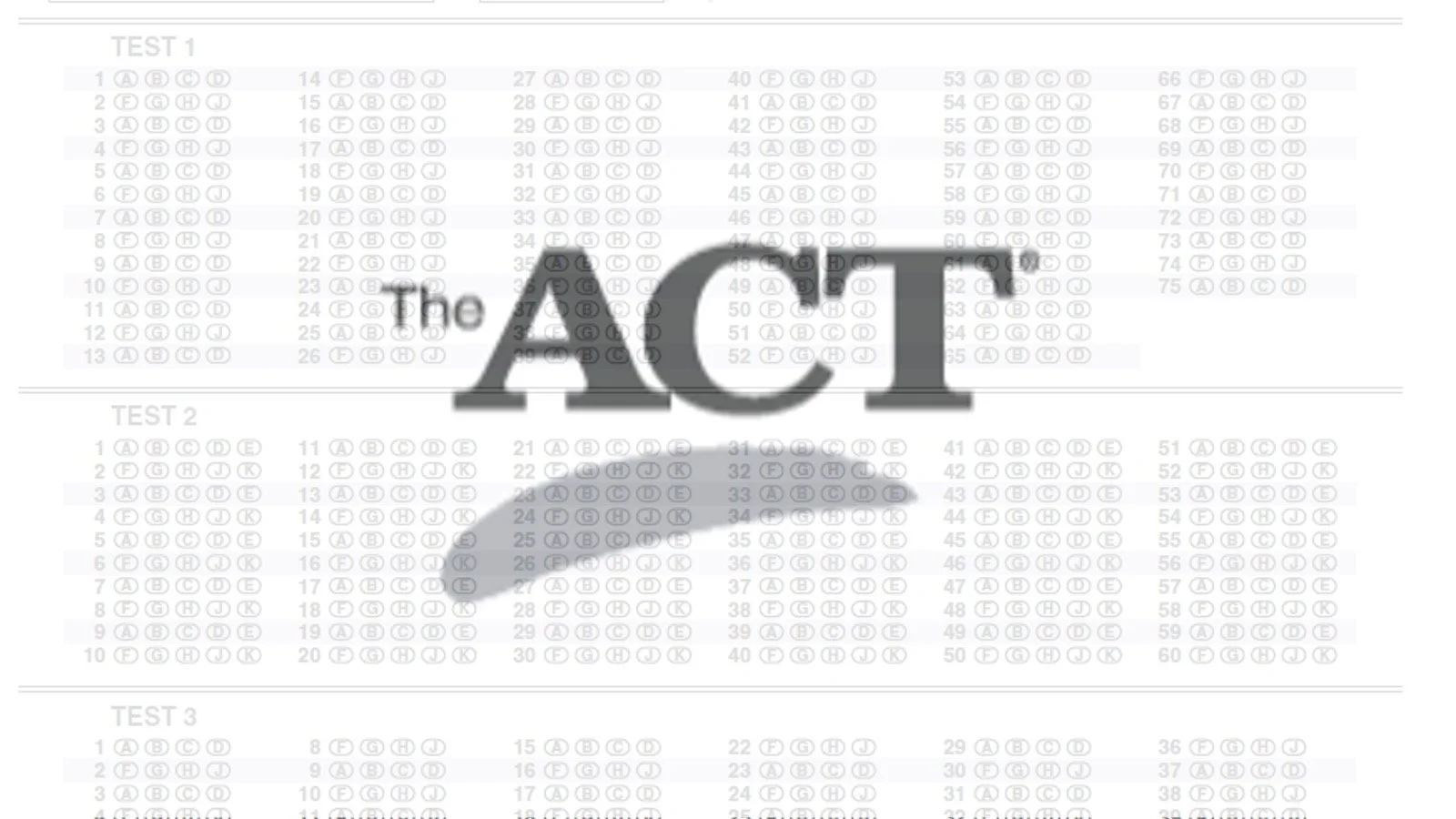Students Should Consider the ACT Instead
In light of the upcoming digital SAT premiering in March, Ivy Link is encouraging students currently in Grade 10 to consider taking the ACT instead of the SAT. Unlike the SAT, there haven’t been any major changes to the ACT since 2016, and even that change was simply making the essay portion optional. Because of the ACT’s consistency, it is relatively easier to prepare for. There is a wider range of full-length ACTs to use for practice, peer scoring data is available going back many years, and it’s easier to predict how your child will perform on the official test day. We’ve included a breakdown of the ACT below, to help you and your child make an informed decision.
Basics of the ACT:
The ACT has 4 multiple-choice sections:
English: 75 questions, 45 minutes
Math: 60 questions, 60 minutes
Reading: 35 questions, 40 minutes
Science: 34 questions, 40 minutesEach of these sections is worth 36 points. Your composite score is the average of your scores from each section.
The test itself takes 2 hours and 55 minutes. For the day of the test, you can expect that the test itself, registration, and transitions will take up to 4 hours total. This includes the optional essay section of the test.
On the day of the test, make sure you have your admissions ticket, valid ID, several No.2 pencils, watch, and an approved calculator. Don’t take anything extra to the test as you may not be admitted in with extra materials.
You can take the ACT as many times as you would like, though you should be strategic about when and how many times you sit for it. Each time you take the test, you are given a score. These scores combine into one superscore. The colleges you submit the scores to will only see the superscore.
Tips when taking the ACT:
Be aware of time limits. Make sure you have a watch so you are able to time yourself. Make sure you know how much time you have for each question. This way if you spend too much time on a single question, you can move forward in a timely manner to stay on track to finish all questions.
Make sure you read the directions. Don’t skim. Read carefully. Don’t assume you know what you’re doing. There might be specific details lost in the skimming process. You don’t want to miss questions, lose points, or potentially derail an entire section because you didn’t read the directions closely enough.
Answer every question, even if you have to guess. There is no penalty for guessing on the test. It’s better to try to make an educated guess than it is to leave an answer blank. At least this way you have a 1 in 4 chance of a correct answer.
In addition to working with a tutor, the best way to prepare for the ACT is to take full-length practice tests. Ivy Link students take between 10 and 15 practice tests during the course of their tutoring. Contact Ivy Link today to get started with tutoring and test prep, or register for a Diagnostic ACT.


